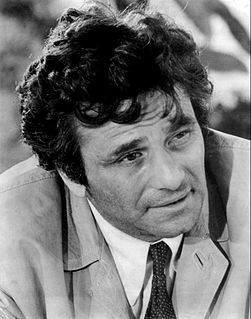A Quote by Donald Ray Pollock
When I started graduate school we did this publishing class where we learned about submitting and read interviews with editors from different magazines. A lot of them said they got so many submissions that unless the first page stuck out or the first paragraph or even the first sentence they'll probably send it back. So part of my idea was that if I have a really good first sentence maybe they'll read on a bit further. At least half, maybe more of the stories in Knockemstiff started with the first sentence; I got it down then went from there.
Related Quotes
The first sentence of the truth is always the hardest. Each of us had a first sentence, and most of us found the strength to say it out loud to someone who deserved to hear it. What we hoped, and what we found, was that the second sentence of the truth is always easier than the first, and the third sentence is even easier than that. Suddenly you are speaking the truth in paragraphs, in pages. The fear, the nervousness, is still there, but it is joined by a new confidence. All along, you've used the first sentence as a lock. But now you find that it's the key.
Pretty much every issue that we've put out, there have been at least one or two things that really surprised me. It sounds like bullshit, but most of the stories that we've run had that effect on me. We get thousands and thousands of submissions and I don't think we've published a story yet - very few, anyway - where there wasn't something like what Mona Simpson described, where a first sentence or a first page didn't just really command attention.
I revise constantly, as I go along and then again after I've finished a first draft. Few of my novels contain a single sentence that closely resembles the sentence I first set down. I just find that I have to keep zapping and zapping the English language until it starts to behave in some way that vaguely matches my intentions.
Some readers read a book as if it were an instruction manual, expecting to understand everything first time, but of course when you write, you put into every sentence an overflow of meaning, and you create in every sentence as many resonances and double meanings and ambiguities as you can possibly pack in there, so that people can read it again and get something new each time.
I'm convinced that the Christian claim is really true, that this is just a warm up to the big event. That this is just the appetizer to the feast, and if we can plug into that and understand that this part of our story is just the introduction, it is not even the first line of the first paragraph, it's just the first letter or first word. We are just getting started.
The first draft of everything, I write longhand. One of the nice things about that is that it makes you keep going. If you write a bad sentence on the computer, then it's very tempting to go back and fidget with it and spend another 20 minutes trying to make it into a good sentence. When you're handwriting, you really just have to move on.
As I see it, a successful story of any kind should be almost like hypnosis: You fascinate the reader with your first sentence, draw them in further with your second sentence and have them in a mild trance by the third. Then, being careful not to wake them, you carry them away up the back alley of your narrative and when they are hopelessly lost within the story, having surrendered themselves to it, you do them terrible violence with a softball bag and then lead them whimpering to the exit on the last page. Believe me, they'll thank you for it.




































